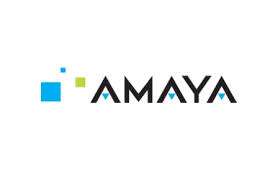Talks Continue on Amaya, William Hill Merger Possibility
Turbulent times continue for Canada’s Amaya Gaming, which on Friday jointly confirmed in a statement, issued with European betting giant William Hill, that the two firms are in continuing talks regarding a possible “merger of equals” of the two firms. The merger, which would most likely be done in the technical sense as a reverse takeover, is the most concrete of several recent rumors involving Amaya.
 In the brief announcement, offered in its entirety below, Amaya also confirmed that it has been exploring various strategic objectives since February of this year. That’s the time frame in which former Amaya CEO David Baazov, a couple of other Amaya execs, and several people closely associated with Baazov were charged with insider trading by Quebec’s financial regulatory body.
In the brief announcement, offered in its entirety below, Amaya also confirmed that it has been exploring various strategic objectives since February of this year. That’s the time frame in which former Amaya CEO David Baazov, a couple of other Amaya execs, and several people closely associated with Baazov were charged with insider trading by Quebec’s financial regulatory body.
As a result of that, and confirmed as part of the latest disclosure, Baazov’s one-time bid to acquire Amaya on behalf of a group of private investors has also been dismissed. At the time — and this just prior to the announcement of the Quebec insider-trading charges — some market speculation ensued that the Baazov bid was a ploy intended to drive Amaya’s share price higher. Subsequent events, of course, took the company in the opposite direction.
Amaya’s key brand, PokerStars, remains the dominant market leader in online poker. However, the brand and Amaya have struggled to retain the consumer enthusiasm that PokerStars enjoyed under its founding regime, led by father and son Isai and Mark Scehinberg. Separate and less-grounded rumors emerging in recent days had PokerStars possibly being reacquired by the Scheinbergs, though for several reasons, that seemed of lesser likelihood.
In any event, the Amaya-William Hill talks were confirmed and of a serious requiring the two companies to make a press disclosure to comply with market regulations. William Hill, of course, is a global giant on the bookmaking side of the global gambling side. As a firm already approved in US states such as Nevada, a William Hill merger/acquisition with Amaya would marginally improve the prospects of the PokerStars brand to continue its reentry into the US market. As of now, a Stars-branded poker site is available in only one US state, New Jersey.
Here’s the joint statement from Amaya and William Hill:
RESPONSE TO PRESS SPECULATION
The Boards of William Hill PLC (LSE: WMH) and Amaya Inc. (TSX: AYA, Nasdaq: AYA) note the recent press speculation and confirm that they are in discussions regarding a potential all share merger of equals.
Amaya has been undertaking a review of its strategic alternatives since February 2016. Over recent months, the Board of William Hill has been evaluating options to accelerate William Hill’s strategy of increasing diversification by growing its digital and international businesses.
The potential merger would be consistent with the strategic objectives of both William Hill and Amaya and would create a clear international leader across online sports betting, poker and casino.
These discussions are ongoing and there can be no certainty that an agreement will be reached.
The Potential Merger would be classified as a reverse takeover under the Listing Rules of the Financial Conduct Authority and is not subject to the City Code on Takeovers and Mergers. William Hill is required to provide certain confirmations to ensure that there is sufficient information available to the public with regard to the potential reverse takeover in order to avoid a suspension of William Hill’s shares. Pursuant to LR 5.6.12G(2) of the Listing Rules, William Hill confirms that Amaya has its shares listed on the Toronto Stock Exchange and Nasdaq Global Select Market and that Amaya has complied with the disclosure requirements applicable on these markets, that information disclosed pursuant to those requirements can be obtained at www.amaya.com/investors and www.amaya.com/press/corporate and that there are no material differences between those disclosure requirements and the disclosure requirements under the Market Abuse Regulation and the Disclosure Guidance and Transparency Rules of the Financial Conduct Authority.




















COMMENTS